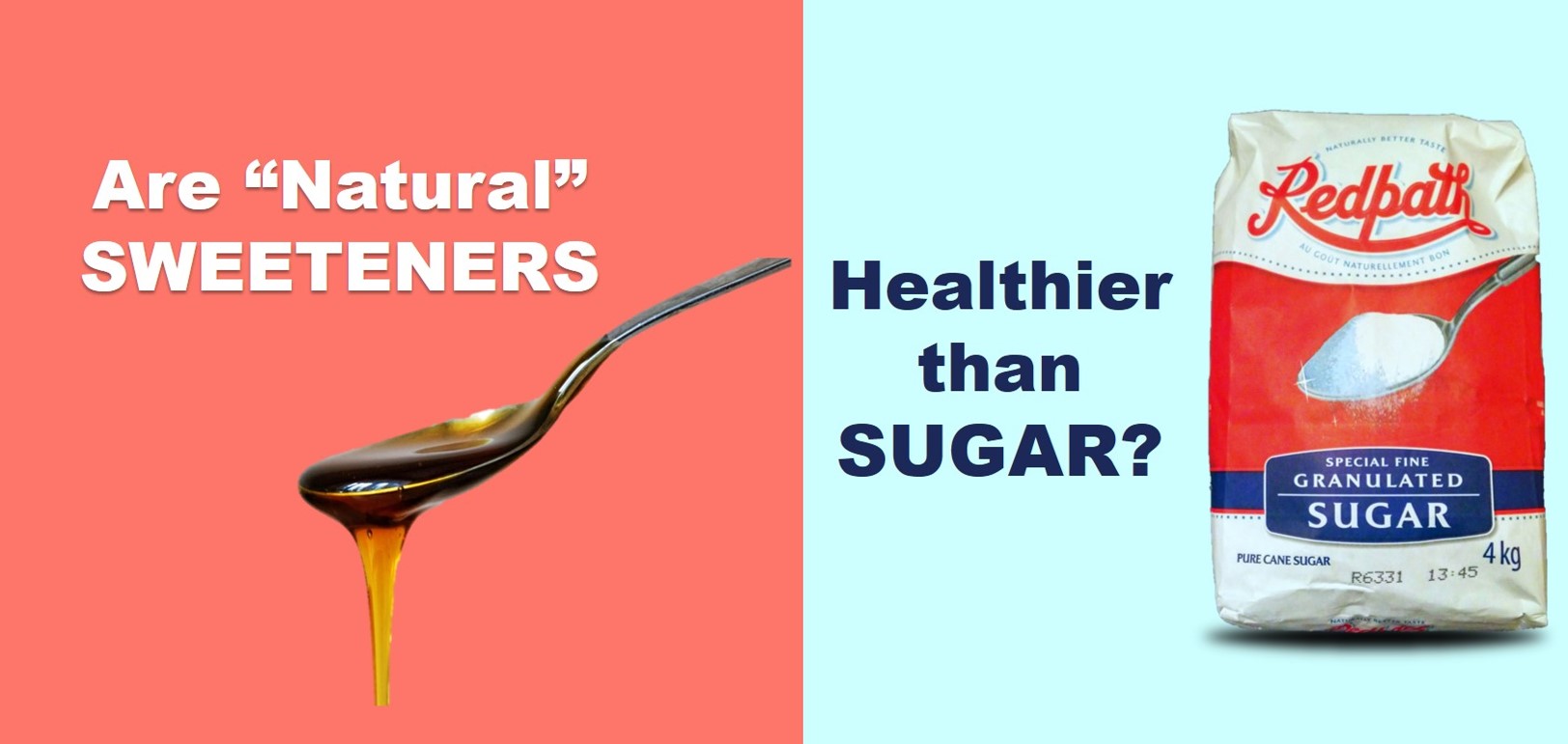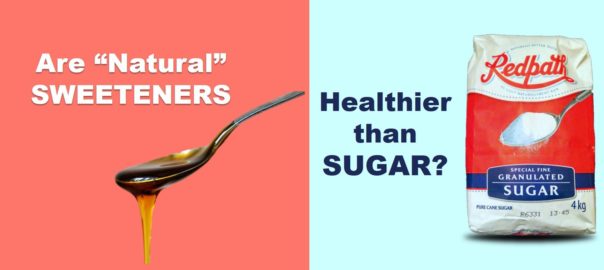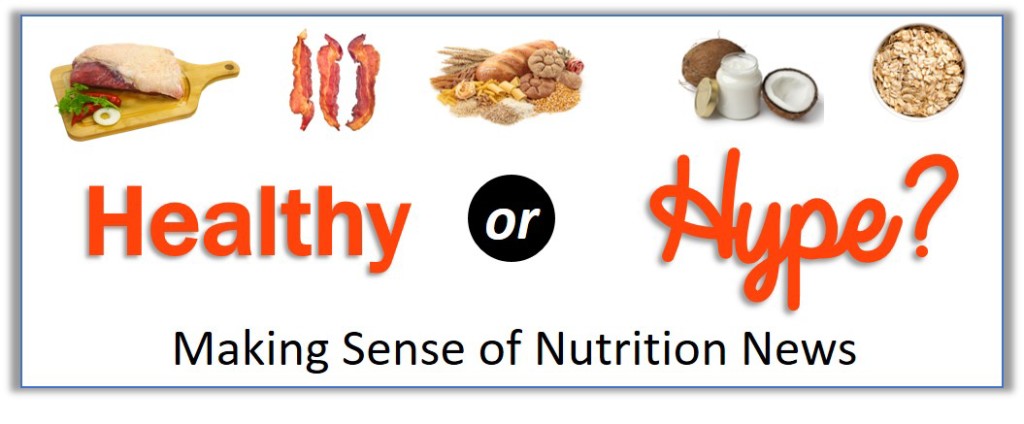The health impact of consuming too much sugar is big news, and many people are looking for alternatives. What about so-called “natural” sweeteners? Food marketers want you to think they are healthier, and labels boasting terms like “naturally sweetened” or “honey-sweetened” are a common fixture.
This line of thinking has made its way into cookbooks, recipe blogs, and many home kitchens. One of my cake recipes wasn’t “healthy,” a reader commented, because it used sugar instead of a more “natural” sweetener like honey.
Are these “naturally” sweetened options really better for you than foods sweetened with sugar?
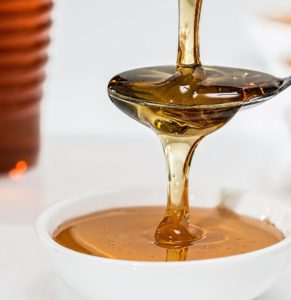 What Are “Natural” Sweeteners?
What Are “Natural” Sweeteners?
When it comes to foods, the term “natural” is ill defined. When people use the term “natural” sweeteners, they typically mean sweeteners that aren’t refined granulated sugar (pure sucrose from sugar cane) or high fructose corn syrup.
Popular “natural” sweeteners include agave nectar, brown rice syrup, coconut sugar, date sugar, honey, maple syrup; molasses, organic cane sugar, sucanat, turbanido sugar (raw sugar).
The Claims
Some of the claims attributed to natural sweeteners include that
“natural” sweeteners are . . .
- less processed
- full of minerals, vitamins, and antioxidants
- lower on the glycemic index scale (may not raise blood sugar as much as other sweeteners)
- lower in fructose/glucose
- much healthier for you than sugar
The Evidence
Less processed
A popular argument for “natural” sweeteners is that they are less processed than sugar.
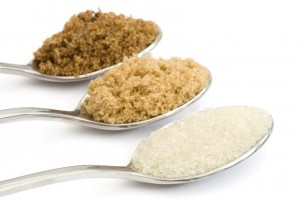 For example, some people consider Turbinado (raw) sugar and Organic Cane Sugar healthier and less processed than sugar. Similar to refined sugar, turbinado sugar is refined cane juice, but a little darker with hints of molasses since it contains more impurities. Organic cane sugar is from organically grown sugar cane. Both of these sugars are highly refined and very similar to table sugar in terms of nutrition and how your body metabolizes them, so you’re out of luck if you’re choosing these sugars for superior nutrition. However, choose turbinado sugar if you like its depth of flavor, or organic cane sugar if you value that it is free of pesticide residues and potentially better for the environment (soil, health of workers exposed to pesticides).
For example, some people consider Turbinado (raw) sugar and Organic Cane Sugar healthier and less processed than sugar. Similar to refined sugar, turbinado sugar is refined cane juice, but a little darker with hints of molasses since it contains more impurities. Organic cane sugar is from organically grown sugar cane. Both of these sugars are highly refined and very similar to table sugar in terms of nutrition and how your body metabolizes them, so you’re out of luck if you’re choosing these sugars for superior nutrition. However, choose turbinado sugar if you like its depth of flavor, or organic cane sugar if you value that it is free of pesticide residues and potentially better for the environment (soil, health of workers exposed to pesticides).
Agave syrup is another popular “natural” sweetener that some consider less processed. Initially, natural health enthusiasts recommended agave nectar because it was “natural,” and low on the glycemic index scale. Also, because agave is sweeter than sugar, the thinking was that people would use less of it. The high fructose content responsible for the lower glycemic index of agave might be a concern. Most fad health gurus who recommended agave enthusiastically (e.g., Dr Oz or Dr. Weil) changed their tune when they found out that agave has a very high fructose content compared to other sweeteners (much higher than high fructose corn syrup, the much vilified sweetener in soft drinks).
Although agave syrup is from the agave plant, it is actually highly processed to deliver a refined and clear syrup, so it’s hard to argue that it is less processed. Sugar is processed out of “natural” sugar cane, but no one calls sugar natural. In both cases, the processing removes fiber and concentrates sugars. Use agave nectar in small quantities if you like the taste of it, or if it truly benefits your recipe, but don’t fool yourself into thinking it’s healthier than other sweeteners.
What About the Minerals in Many Natural Sweeteners?
Some “natural” sweeteners are less processed than sugar and do retain some minerals and other substances. Does this make them a better choice than refined sugar? Here are a some sweeteners touted for their mineral content that you may be wondering about . . .
Honey
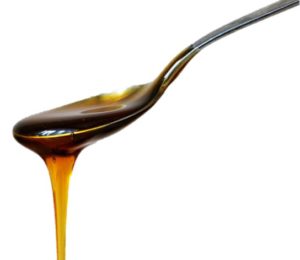 Honey is another sweetener many choose over sugar for health reasons, and claimed benefits range from preventing cancer and heart disease to regulating blood sugar. Honey does contain trace amounts of minerals and antioxidants. Darker honey has a stronger flavour and contains more antioxidants, but the amount is negligible compared to other foods like fruits and vegetables that offer many health benefits. As one of the oldest sweeteners on earth, and the product of honeybees foraging nectar from flowers, honey is truly amazing and offers wonderful flavors. But despite terrific tastes that vary with the seasons and flowers, and diverse culinary uses, your body treats honey pretty much like refined sugar, and you shouldn’t consume honey for health reasons.
Honey is another sweetener many choose over sugar for health reasons, and claimed benefits range from preventing cancer and heart disease to regulating blood sugar. Honey does contain trace amounts of minerals and antioxidants. Darker honey has a stronger flavour and contains more antioxidants, but the amount is negligible compared to other foods like fruits and vegetables that offer many health benefits. As one of the oldest sweeteners on earth, and the product of honeybees foraging nectar from flowers, honey is truly amazing and offers wonderful flavors. But despite terrific tastes that vary with the seasons and flowers, and diverse culinary uses, your body treats honey pretty much like refined sugar, and you shouldn’t consume honey for health reasons.
Coconut Sugar
Coconut sugar is promoted as a good source of magnesium . . . but has only 1 mg of magnesium per teaspoon. Compare that to ½ cup of cooked spinach (80 mg magnesium); ½ cup black beans (60 mg magnesium), or one medium banana (30 mg magnesium). So, you shouldn’t be eating coconut sugar for the magnesium. . . If coconut sugar makes your recipe taste great, go for it. But keep in mind that coconut sugar has the same calorie and carbohydrate content as regular sugar and is mostly sucrose.
Maple Syrup
 Maple syrup, a product of the boiled sap of maple trees, is my all-time favourite sweetener (owing to being Canadian, or maybe the fact that my grandmother used to drink it out of a shot glass during maple syrup season . . . ). Maple syrup contains small amounts antioxidants and minerals (calcium, potassium, and iron), and a moderate amount of potassium and zinc. It is a good source of manganese, but, you would be better off getting your manganese from nuts and seeds, leafy greens, unrefined whole grains, or legumes.
Maple syrup, a product of the boiled sap of maple trees, is my all-time favourite sweetener (owing to being Canadian, or maybe the fact that my grandmother used to drink it out of a shot glass during maple syrup season . . . ). Maple syrup contains small amounts antioxidants and minerals (calcium, potassium, and iron), and a moderate amount of potassium and zinc. It is a good source of manganese, but, you would be better off getting your manganese from nuts and seeds, leafy greens, unrefined whole grains, or legumes.
Researchers at the University of Rhode Island have isolated potentially beneficial compounds in maple syrup, and the media picked up with “superfood” type headlines. And a recent laboratory study found that a concentrated extract of maple syrup positively influenced a protein common in the brains of people with Alzheimer’s: though intriguing, these preliminary findings involve isolated compounds that don’t necessarily translate to human consumption and health, and shouldn’t be interpreted as health advice to consume more maple syrup! You can read more about Sweet Hype for Maple Syrup by McGill’s Joe Schwartz here.
Brown Rice Syrup
Brown rice syrup sounds healthy and is a popular ingredient on “health guru” food blogs that lack scientific evidence. You’ll see it in many commercial granola, cereal, and fruit-and-nut type bars. Many well-intentioned vegan food bloggers use brown rice syrup as a “glue” to bind ingredients in unbaked cookies and bars: I liked the dried fruit and nut combinations, but rice syrup makes the bars too sticky and crumbly to be practical. Using eggs to bind ingredients and baking bars/cookies offers much better nutrition than adding more brown rice syrup to help ingredients bind! And similar to all sweeteners, your body breaks down brown rice syrup and treats it like other sweeteners, whether it is organic or not, part of a “healthy” cookie, or poured on pancakes.
Molasses
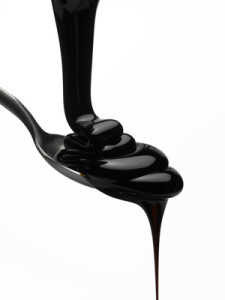 Molasses is the dark liquid that remains after sugar is extracted from sugar cane. It comes in several varieties depending on the level of processing. Blackstrap molasses is the least refined and a notable exception for getting nutrition beyond calories from sweeteners, because it has a high enough iron content (7 mg in 2 tbsp.) to be considered beneficial. But because of its bitter flavor people don’t typically substitute it for sugar. Light molasses is more palatable, but it does not contain as much iron as blackstrap molasses or other minerals (1.8 mg of iron in 2 tbsp.).
Molasses is the dark liquid that remains after sugar is extracted from sugar cane. It comes in several varieties depending on the level of processing. Blackstrap molasses is the least refined and a notable exception for getting nutrition beyond calories from sweeteners, because it has a high enough iron content (7 mg in 2 tbsp.) to be considered beneficial. But because of its bitter flavor people don’t typically substitute it for sugar. Light molasses is more palatable, but it does not contain as much iron as blackstrap molasses or other minerals (1.8 mg of iron in 2 tbsp.).
Even though many “natural” sweeteners provide more minerals than white sugar, it does not make them “healthy.” And even if these sweeteners contained significant amounts of minerals, you’re better off getting these minerals from foods that don’t provide empty calories and influence your hormones or metabolism.
Glycemic Index
The glycemic index is a way of measuring the effect of a food on blood sugar. Although some “natural” sweeteners may have a lower glycemic index than others, many question the influence of this measure on health. This study suggests that a low glycemic index diet didn’t improve insulin sensitivity, cholesterol, or other heart disease risk factors for people who are already following a healthful diet. Another recent study calls into question the reliability of this measure. In general, judging whether a food is nutritious or not based on one measure, like the glycemic index, is not a good idea!
Is Fructose poison?
Beyond taste and texture, sweeteners do vary in the number of calories, sweetness, chemical composition, and how your body breaks them down. Much of the confusion and championing of certain sweeteners comes from exaggerating the influence of how your body breaks down sugars on health. For example, some call fructose poison and blame it for the obesity epidemic, but the evidence doesn’t support this sweeping statement. Your body metabolizes fructose differently than other sugars, and studies suggest that high intakes could raise triglycerides, predisposing individuals to fatty liver disease, insulin resistance, and heart disease. But researchers conducted these studies mostly in animals, and looked at very high doses of 100% fructose: this is not how fructose is consumed in a typical diet. Most sweeteners are a combination of glucose and fructose. More recent studies in humans show no evidence that fructose influences metabolic syndrome or cardiovascular disease risk factors compared to glucose. Blaming fructose for health problems overshadows more important factors like body weight, overall calorie intake, and inactivity. Choosing a sweetener based on fructose content isn’t the best strategy for health.
 Beware the health halo . . . sugar is sugar!
Beware the health halo . . . sugar is sugar!
Considering “natural sugars” as healthy can have a health halo effect, meaning that if you think something is good for you, you feel better about eating it, and may end up consuming more of it. Researchers have documented the health halo effect in several studies, like this one.
In fact, simply adding the word “fruit” to the word sugar makes people think it is healthier. In this recent study published in the journal Appetite, consumers looking at cereal ingredients perceived the cereal with “fruit sugar” as healthier than the cereal with “sugar,” although the nutrient profiles of both cereals were the same. Fruit juice concentrate is a common sweetener in many foods, but it is no healthier than sugar, and organic fruit juice gummy bears with no artificial flavours are not better for you than jujubes.
Bottom Line
Despite marketing claims and labels that suggest otherwise, “natural” sweeteners are not better for you than refined sugar. Most people would be better off consuming less sugar from all sources, “natural” and refined.
Use “natural” sweeteners because you like their flavour or they work well in your cooking/baking. But they are not better for you nor will they improve your health. Treat them as you would sugar and consume judiciously.
Sugar has made its way into many foods, and even commonly consumed foods and beverages contain surprisingly high amounts of sugar. For example, 1 cup of flavoured yogurt contains about 11 teaspoons (42 g) of sugar. It’s not just “added” sugars that is an issue: most fruit juice contains almost as much sugar as the same amount of soft drink (1.5 cups = 8-10 teaspoons of sugar; and 15 teaspoons for grape juice). Yes, the sugar is from fruit, but your body will metabolize it in a similar way.
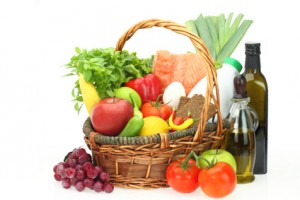 Sugar is not toxic
Sugar is not toxic
This post is not intended to vilify sugar, but to clarify the confusion around the term “natural” sweeteners. Plenty of misinformation demonizes sugar. Excess sugar intake is not healthy, but sugars are not toxic, sugars do not feed cancer, and sugars are not the cause of the obesity epidemic or other chronic diseases.
Some of the world’s healthiest individuals (high performance endurance athletes) actually use sugar to fuel their racing and training. In fact, research shows that the timing of your physical activity in relation to ingesting sugar has a large influence on how your blood glucose responds. Also, being physically active in general can influence how your body deals with sugar.
You do not need to “quit sugar.” Trying to eat “sugar free” or obsessing too much about specific foods or food components isn’t necessary for health. In fact, it is a strategy that could backfire. You are better off focusing on a dietary pattern that helps you maintain a healthy weight and includes plenty of whole, minimally processed foods.
You’ll find more “Healthy or Hype?” articles and resources here.
Share This: